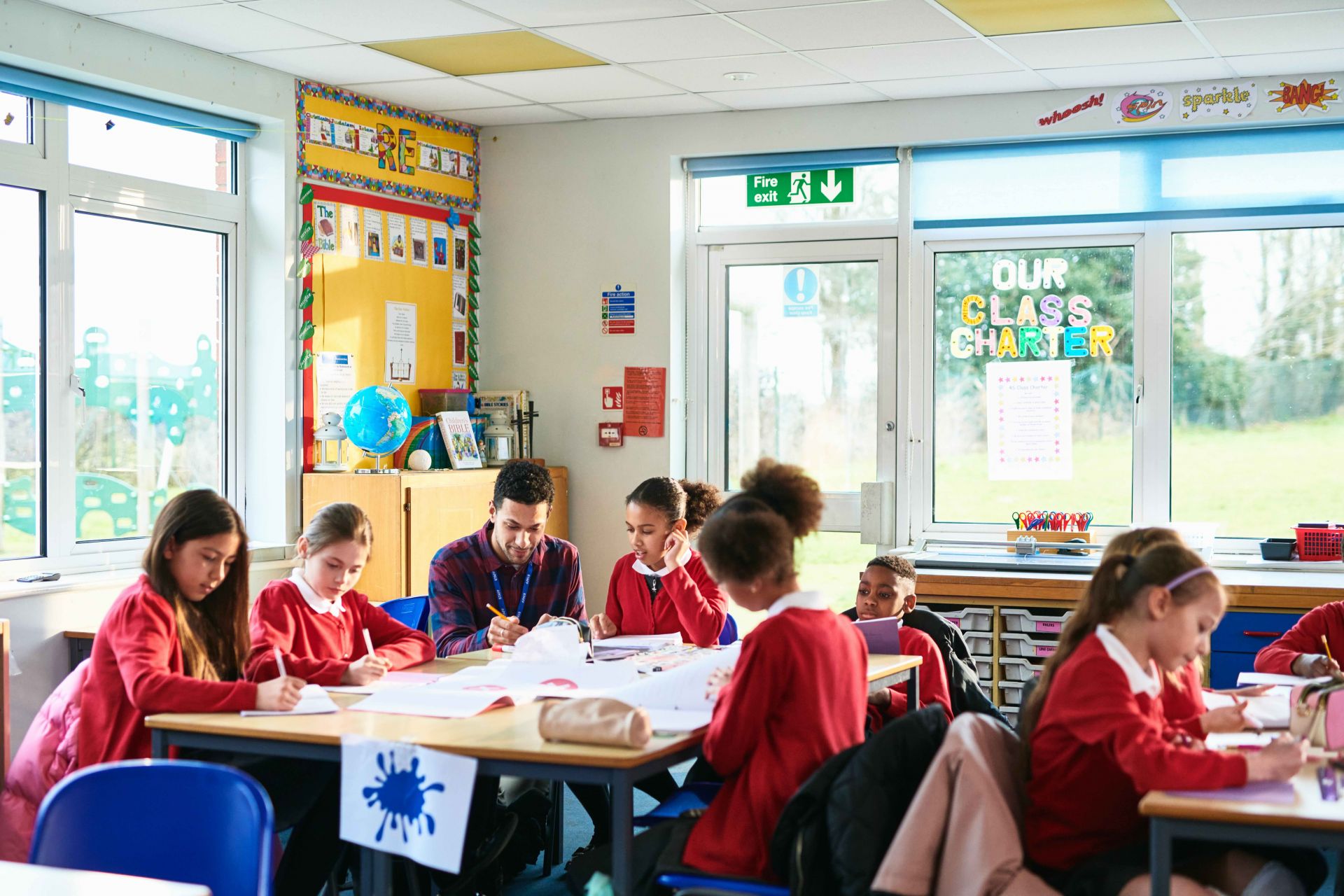
Why collaborative mentoring for teachers is key to great education

To keep talented teachers in the profession, we need to support them in ways that are meaningful, evidence-based and grounded in trust
Published 23 July 2025
Australia’s education system is grappling with a serious challenge.
The Australian Federal Government has warned that secondary teacher demand currently outstrips supply by over 4,000, with working conditions and professional status flagged as urgent areas for action.

While much of the focus has been on recruiting new teachers to fill workforce gaps, we also need to rethink how we help educators grow and thrive once they enter the profession.
So how do we retain and support the teachers we already have?
We recently published a report highlighting one of the most promising strategies for doing just that: collaborative mentoring.
We found that teachers who mentor each other experience strong professional growth, are more likely to stay in the profession and become more capable and confident in the classroom.

A smarter way to support teachers
Collaborative mentoring involves two or more educators working together to reflect on and improve their practice, regularly switching roles between mentor and mentee.
It’s a simple idea, but it has powerful effects.
This reciprocal process allows them to share knowledge, develop their skills and build trust in a supportive environment.
Unlike traditional top-down professional development, where teachers are often expected to simply take in information, collaborative mentoring recognises the expertise educators already bring to their roles.
When teachers feel seen, heard and respected, they are more likely to stay engaged, continue learning, and grow their confidence. Collaborative mentoring creates space for that kind of growth.

Why we need a new approach
Only about a quarter of Australian teachers feel that society values their work. Increasing demands for accountability, coupled with declining autonomy, have contributed to stress, burnout and a steady rise in attrition.
Educator surveys show that teachers are spending less time helping students learn and more time fulfilling administrative requirements. This shift is affecting both teacher wellbeing and student outcomes.
And the problem is not unique to schools. Universities are also anticipating major turnover in the next five years, driven by retirement, burnout and job dissatisfaction.
While these issues are complex, part of the solution lies in rethinking how we support professional learning.

What makes collaborative mentoring work?
Our research shows the most effective approaches share the following features:
Safe and trusting environment
Professional growth requires trust. Educators need to feel secure enough to reflect honestly, try new approaches and take risks in their teaching.
While informal mentoring already happens in many schools, through conversations over lunch or casual classroom visits, more structured, intentional support is needed to make lasting change.

Reciprocal and strengths-based orientation
Collaborative mentoring treats everyone as both learner and expert. Educators take turns mentoring and being mentored, working together to observe lessons, analyse student work and reflect on their teaching.
This approach helps teachers identify their strengths and boost their confidence in their teaching.
Tailored and ongoing program
Collaborative mentoring is not a one-off session or checklist. It’s a continuous process shaped by each educator’s context and goals.
Ongoing mentoring relationships allow for cycles of observation, feedback and dialogue to develop.

Evidence-informed
Meaningful insights start with good data.
Examining student work samples and the use of ‘observation tools’ gives a snapshot of teaching practice that can spark deeper conversations. These tools can be quantitative (like checklists or scores), qualitative (descriptive feedback) or a mix of both.
What matters most is that the tools gather evidence about agreed-upon priorities, helping mentors focus on key areas of practice.
Collaborative mentoring in action
We have identified three practical approaches that use collaborative mentoring to build educator capability:
Team teaching involves two or more educators sharing responsibility for planning and delivering a lesson. It allows teachers to learn from one another, share ideas and try new strategies together. It also supports deeper collaboration and shared reflection.

Lesson study, which began in Japan, brings small teams of educators together to plan, observe and revise a lesson. This structured process helps teachers reflect on what works in the classroom and why, improving both subject knowledge and pedagogy.
Quality Teaching Rounds bring together groups of three or more educators who observe each other’s lessons and use a shared framework to analyse what they see. The structured feedback conversations that follow help sharpen teaching practice and build collegial trust.
Reclaiming the joy of teaching
Collaborative mentoring isn’t just a professional development framework; it represents a cultural shift.
It signals a move toward trusting teachers to lead their own growth and toward building a broader culture of shared learning and continuous improvement.
It focuses on the key issues of improving retention, wellbeing and learning outcomes across the sector.

We’ve long known that great teaching makes a difference. To keep great teachers in the profession, we need to support them in ways that are meaningful, reflective and grounded in trust.
Collaborative mentoring does just that. It helps educators keep learning and reminds them why they chose to teach in the first place.
In a time of crisis and change, that may be exactly what education needs.


